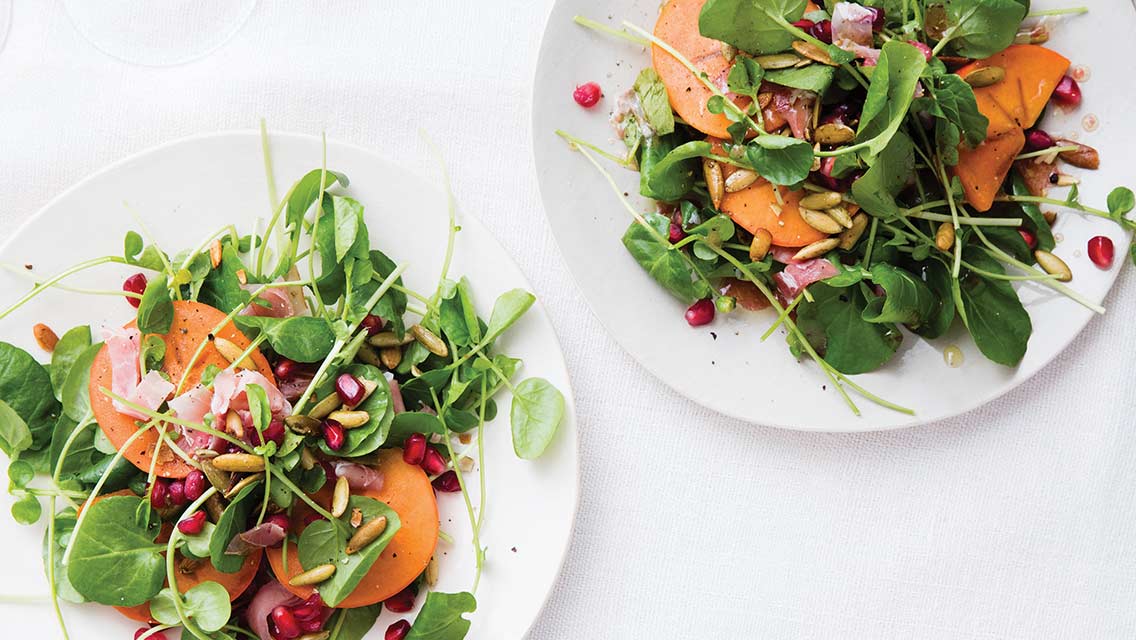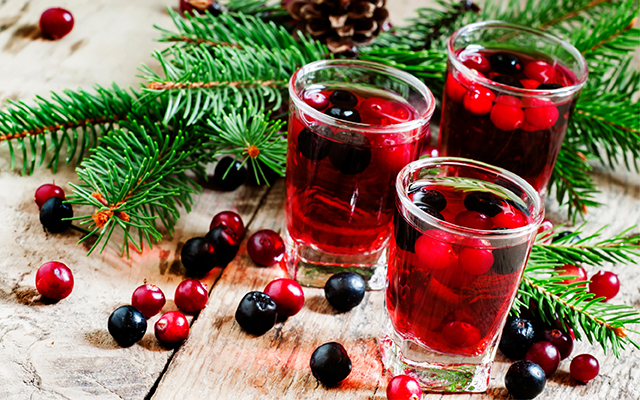In her latest book, Food Saved Me, Danielle Walker shares a memory that will likely resonate with anyone with food intolerances or allergies. In the opening chapter, she recalls the first “Friendsgiving” she celebrated after making the decision to try to heal her autoimmune disorder by changing her diet.
“Most of my fondest memories were tied to the holidays,” writes the New York Times best-selling cookbook author. “And nearly all of them involved food. I so looked forward to gathering around the table with family and friends to enjoy one another’s company over a wonderful meal. But now it all felt different. Lost. Abandoned. All those traditions felt like they were being discarded right alongside my newly rejected foods.”
As Walker surveyed the holiday spread before her and served herself a helping of the only two foods she could eat — dry turkey and a watery plate of mashed cauliflower — she grieved the foods she could no longer eat and the friendships she thought would never be the same.
“While everyone chattered away, raving about the food and complimenting each other on the different dishes and side dishes, I crawled into my own little hole,” she writes. “I felt different. Left out. Like everyone was looking at me. I felt sorry for myself. I didn’t even have the courage to explain why I was eating this way for fear that we wouldn’t be invited to our friends’ homes — or worse, that they wouldn’t ever want to come to our house.”
Prior to making the decision to go grain- and gluten-free, Walker had become accustomed to spending six months of every year extremely sick, several times bordering on death. Diagnosed with ulcerative colitis at age 22, she experienced extreme weight loss, hair loss, malnutrition, debilitating pain, and sleeplessness with every flare-up.
Walker’s doctors refused to speak to her about diet, even though the medications they had prescribed her weren’t working. But after tons of research, Walker decided to make dietary changes, and in the 12 years since, has become a pioneer of the grain- and gluten-free lifestyle, publishing four cookbooks, three of which are New York Times bestsellers.
Thanksgiving is once again something Walker looks forward to, and through lots of trial and error — and health advances and setbacks — she’s discovered what her own body can and can’t handle and has reclaimed her health.
Here, she shares advice for those who are entering the holiday season with their own dietary restrictions.
Life Time Editorial | What social and emotional challenges do the holidays bring up for people with food allergies or intolerances?
Danielle Walker | It can be difficult to navigate the holidays when you have food allergies and/or intolerances to specific ingredients — especially when those ingredients are usually common staples in every home. There might be some anxiety, embarrassment, and feelings of inadequacy as the holidays approach, and you begin to consider how much of the holidays revolve around food.
LTE | How has your personal experience navigating holiday gatherings changed over the years — has it gotten easier since that first Friendsgiving in 2009 or is it still difficult?
DW | By now I can thankfully say that it has gotten a lot easier! When I first began this journey of changing the way I approached nutrition, there were not many, if any, products that catered to multiple food allergies or were gluten-free.
While I still cook everything from scratch for the holidays, it’s comforting to know that if I need to run out to get a specific product or ingredient, I can find gluten-free, dairy-free, and allergy-friendly products on shelves. My family has also taken to using my recipes from my holiday cookbook Celebrations, so we don’t have to have two meals and I never feel left out.
LTE | You say you went through a period where you grieved the food you couldn’t eat. Do you still? Does everybody?
DW | I think everyone grieves what they can’t have. It can be a drastic change having to completely remodel how you eat and therefore cook — reading every label and dissecting every ingredient.
I not only grieved for the foods I used to love, but I also grieved for the celebrations that I (erroneously!) thought I would never be able to host. I don’t feel like that anymore. I might occasionally look at an old treat and feel a pang of nostalgia, but I’d rather focus on what I can enjoy. I’ve come up with re-creations of nearly every celebratory food that I once missed, so I no longer feel like I’m missing anything.
LTE | What advice would you offer someone with dietary restrictions to help them joyfully participate in holiday gatherings?
DW | Focus on the moment and celebration rather than the food. Despite this strong correlation between holidays and food, which is inevitable, I tried to concentrate my efforts on what I could do to help in the kitchen, what I could eat, and being present in the moment with my loved ones.
There are so many ways to connect with friends and family outside of sharing food. Even the simplest of actions like putting your phone away and being present allow genuine connection to happen. You could also bring a few dishes to share and introduce your loved ones to new traditions.
LTE | What are your tips for someone who’s trying to explain to family and friends why they eat the way they do?
DW | I believe the best approach is to keep it simple and have resources to share so if they want to conduct their own research, they can. I think times are very different now from what they were 12 years ago, and people in general are more aware of food sensitivities. This enables easier conversations.
My best tip is to always bring something delicious that fits within your dietary restrictions and share it with everyone so there’s not a shred of doubt that eating well can still be possible.
LTE | What suggestions for planning a holiday gathering do you have for someone who may be knowingly or unknowingly hosting someone with a food allergy or intolerance?
DW | If you’re knowingly hosting someone with food intolerances, it’s nice to prepare something they can enjoy. And if it’s unknowingly, just be aware that there may be a guest who has allergies and have at least one dish that excludes the main intolerances such as gluten, nuts, dairy, and eggs. There are so many incredible recipes out there now that you can make without having to prepare two different dishes — and everyone can enjoy them.
LTE | What are some foolproof dishes those with dietary restrictions can bring to a holiday gathering to wow the uninitiated?
DW | I have a variety of fun and delicious holiday recipes across my books and blog, but my cookbook Celebrations is filled with virtually every celebratory and holiday dish you can imagine — free of dairy, gluten, and refined sugar.
I recently created two versions of a grain-free and gluten-free Pumpkin Spice Sheet Cake, a regular version made with almond flour and a nut-free version made with coconut flour. Both recipes can be made with or without dairy, making it an ideal recipe to cater to specific allergies.
I also have an incredible Thanksgiving chapter in Celebrations that features classic staples such as Green Bean Casserole, Maple Pumpkin Pie, and an Apple Sausage Stuffing.
To find a few of Walker’s recipes from her Celebrations cookbook, visit “Celebrations: 5 Recipes from Danielle Walker.” You can also read her 2015 cover story from Experience Life and watch her behind-the-scenes cover shoot interview at “Cooking Against the Grain.”




